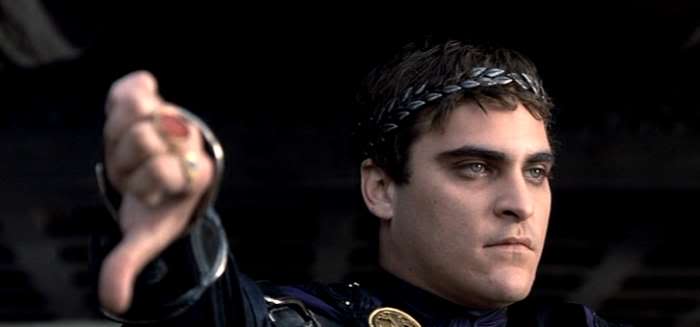From Gibbon’s Decline and Fall of the Roman Empire, Chp. IV Part I
The monstrous vices of the son have cast a shade on the purity of the father’s virtues. It has been objected to Marcus, that he sacrificed the happiness of millions to a fond partiality for a worthless boy; and that he chose a successor in his own family, rather than in the republic. Nothing however, was neglected by the anxious father, and by the men of virtue and learning whom he summoned to his assistance, to expand the narrow mind of young Commodus, to correct his growing vices, and to render him worthy of the throne for which he was designed. But the power of instruction is seldom of much efficacy, except in those happy dispositions where it is almost superfluous. The distasteful lesson of a grave philosopher was, in a moment, obliterated by the whisper of a profligate favorite; and Marcus himself blasted the fruits of this labored education, by admitting his son, at the age of fourteen or fifteen, to a full participation of the Imperial power. He lived but four years afterwards: but he lived long enough to repent a rash measure, which raised the impetuous youth above the restraint of reason and authority.
Most of the crimes which disturb the internal peace of society, are produced by the restraints which the necessary but unequal laws of property have imposed on the appetites of mankind, by confining to a few the possession of those objects that are coveted by many. Of all our passions and appetites, the love of power is of the most imperious and unsociable nature, since the pride of one man requires the submission of the multitude. In the tumult of civil discord, the laws of society lose their force, and their place is seldom supplied by those of humanity. The ardor of contention, the pride of victory, the despair of success, the memory of past injuries, and the fear of future dangers, all contribute to inflame the mind, and to silence the voice of pity. From such motives almost every page of history has been stained with civil blood; but these motives will not account for the unprovoked cruelties of Commodus, who had nothing to wish and every thing to enjoy. The beloved son of Marcus succeeded to his father, amidst the acclamations of the senate and armies; 6 and when he ascended the throne, the happy youth saw round him neither competitor to remove, nor enemies to punish. In this calm, elevated station, it was surely natural that he should prefer the love of mankind to their detestation, the mild glories of his five predecessors to the ignominious fate of Nero and Domitian.
Yet Commodus was not, as he has been represented, a tiger born with an insatiate thirst of human blood, and capable, from his infancy, of the most inhuman actions. Nature had formed him of a weak rather than a wicked disposition. His simplicity and timidity rendered him the slave of his attendants, who gradually corrupted his mind. His cruelty, which at first obeyed the dictates of others, degenerated into habit, and at length became the ruling passion of his soul.

